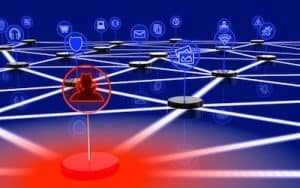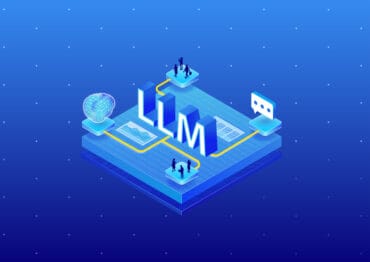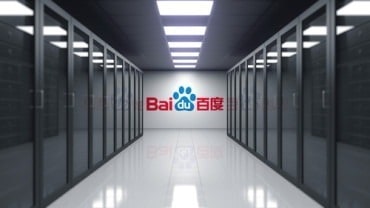
The most significant cybersecurity focus for 2021 for 5G and edge will be blending human expertise with newer solutions such as AI-driven security.
Advances in edge computing and the availability of 5G are enabling new real-time applications. They also are helping companies shift to remote operations in response to disruption from 2020. Whether it’s off-premises computing or a remote workforce, the move to decentralize operations could transform how we think about work for years. But going hand-in-hand with these advancements, a new set of cybersecurity challenges are emerging.
As a result, cybersecurity must evolve to address this change in the working landscape, and it’s not just relevant to enterprise operations. Even small businesses will need to pay attention to cybersecurity advances to ensure as little disruption as possible. Here’s what you need to know going forward into 2021.
See also: Why Cybersecurity Can’t Be an Afterthought in the 5G Era
Why cybersecurity is seeing a resurgence
Cybersecurity has always been a critical component of operating a business. However, new advances in network capability will require businesses to think about cybersecurity in a new way. With new distributed systems and remote work happening with more personal devices, it’s a lot to think about.
According to a survey from Enterprise Technology Research, remote work is expected to double in 2021, while tech budgets are expected to increase. This combination could show that organizations are thinking about security possibilities more closely following a year of serious disruption.
5G requires an evolution in security
5G has so much potential for shifting to off-premises computing. In the past, on-premises was the most secure for businesses with sensitive data, but that’s not necessarily true anymore. Now, distributed computing, edge, and IoT coverage allow companies to blend scale with accuracy.
The downside to this power is that hackers and malicious actors can also use this new network connectivity to launch more complex, more devastating attacks. 5G is a brand-new solution to our networks but inherent in this race to 5G is shifting how we think of cybersecurity.
Even the National Defense Authorization Act focused heavily on bolstering cybersecurity for the coming years. Much of this is due to 5G’s lack of “hub and spoke” design, making it more difficult for businesses to implement cohesive security practices. The increase in bandwidth and the use of edge devices also provide potential new avenues for attack.
We aren’t suspending the race to 5G despite these new security challenges. Instead, businesses will be responsible for more innovative and more comprehensive care. This will operate in tandem with new cybersecurity regulations and guidelines from government bodies, but business will focus on:
- Following best practices (think NIST guidelines)
- Higher investment in cybersecurity structures
- Deploying machine learning or AI security protocols.

Businesses will focus on CISO positions
The Chief Information Security Officer will be a large part of enterprise-level solutions for cybersecurity. If 5G is ushering in new cybersecurity needs, companies will need a focused and creative approach to keeping networks and sensitive data.
Smaller businesses may not have the capacity to hire a stand-alone position, but third-party or SaaS options may fill this role. Application security vendors and the open-source community are also a steady part of this development.
The purpose of this C-suite level position is to understand security within a business context. Security will be an ongoing strategy, requiring businesses to evolve and pivot quickly in response to new threats. This monitoring will build trust with customers and navigate regulatory demands.
Human intervention and expertise will offer companies a better chance of implementing a security-first solution for tackling new security threats. Dedicated software solutions only take you so far. Implementing human expertise is the missing piece companies need to move forward.
Talent gap remains an issue
Speaking of CISO, the race to fill in the talent gap in security may kick up in 2021 after the dust from the pandemic settles. AI may get all the glory, but business needs a practical expert as well.
Even small businesses have sensitive data that will need protection. This move is proactive and will help companies, particularly B2Bs, that have large amounts of data. And because more businesses are moving to remote operations or flex work, having human talent for cybersecurity — rather than relying on established systems or glittery software without human intervention — is more important than ever.
Companies that aren’t focused on data as a service or product may feel even further behind handling security-first initiatives. Hiring security positions can help businesses catch up and avoid the risk and loss of revenue because of ignoring key security issues.
So how can companies fill in the talent gap? It’s not going to come from layoffs or restructuring since companies seem to be prioritizing those positions in spite of other team cuts. Instead, companies may consider:
- Consider remote security workers
- Retrain current team members and invest in their professional growth
- Consider collaborations to develop or attract talent.
No matter what, cybersecurity is top priority
Making the transition to 5G and realizing the full potential of our data systems will require a security-first approach to building. Businesses that take this approach will provide their customers the trust they need to offer access to critical data and allow businesses to avoid the risk and penalties associated with security breaches.
The most significant focus for 2021 will be on blending human expertise with newer solutions such as AI-driven security solutions. This will be the best option for companies to stay on top of creative and innovative security needs as we transition to this new era of work. With 5G coming and remote work staying in place for the coming years, cybersecurity will be close behind.







